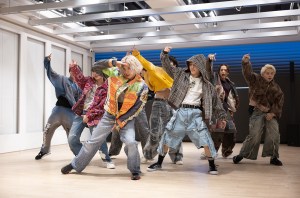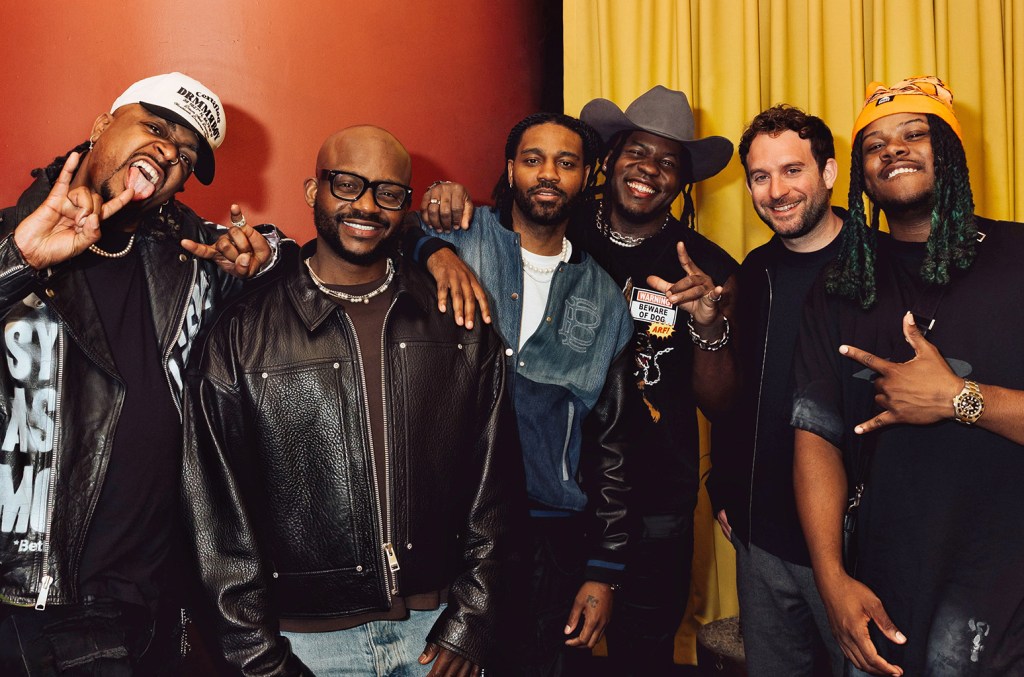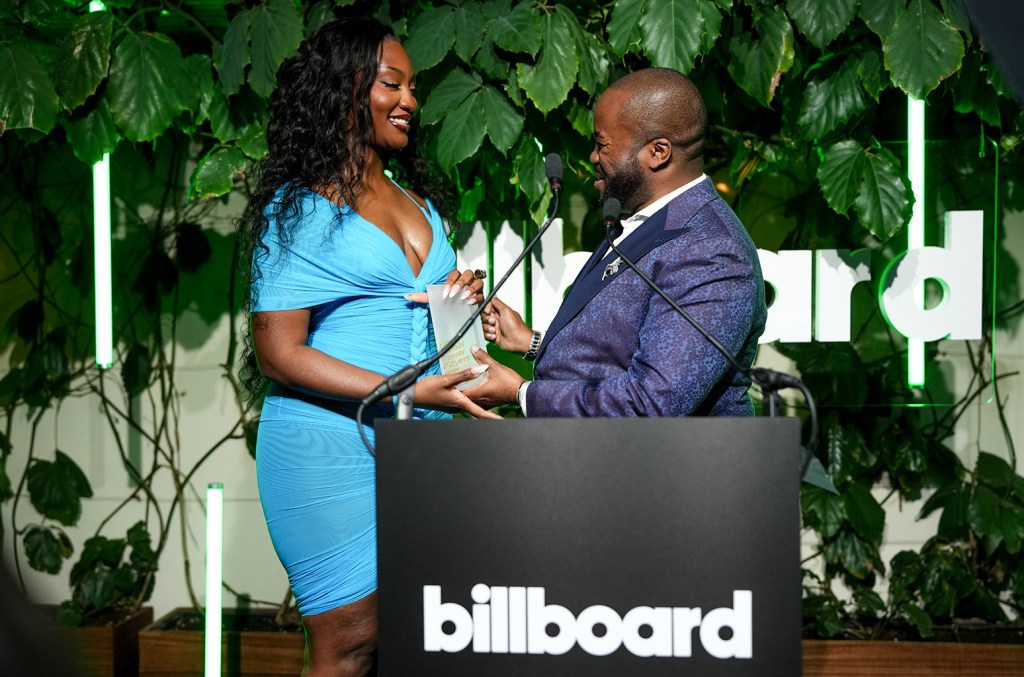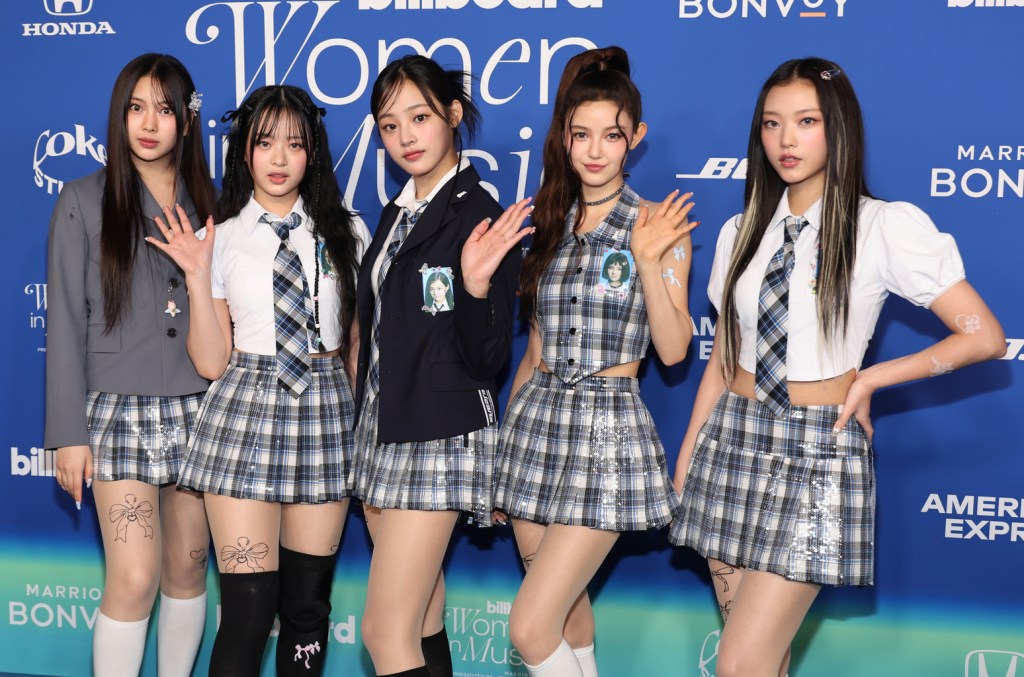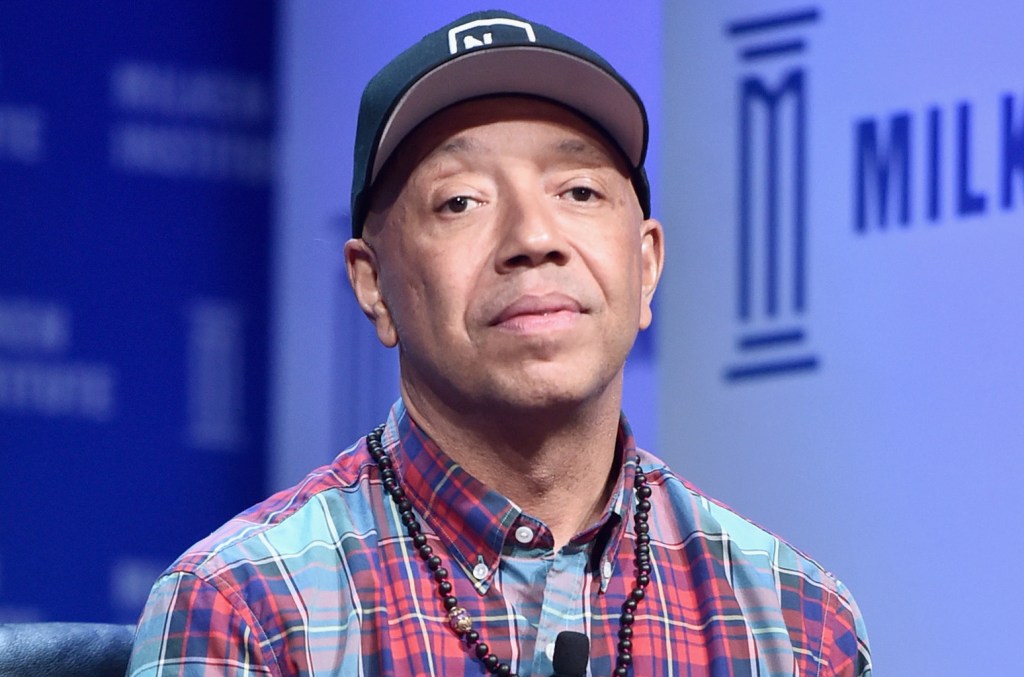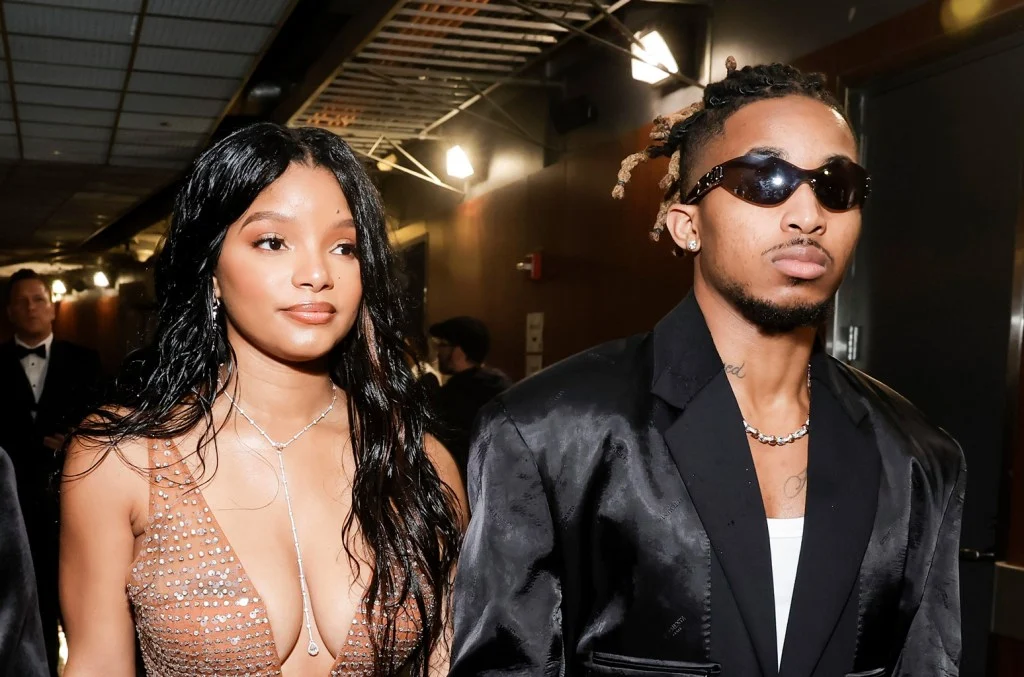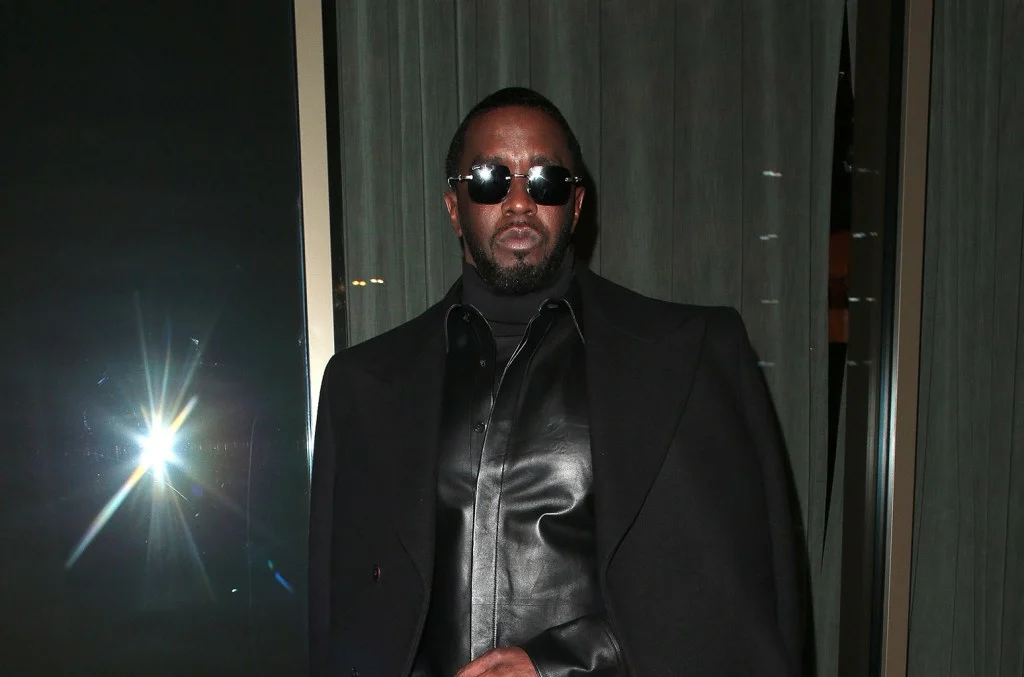Business
Page: 46
Concord Originals, the film and TV division of music company Concord, has acquired storied film studio RKO, giving the Nashville-based music company a wealth of opportunities to promote and capitalize on its publishing and recorded music catalog.
RKO is one of Hollywood’s oldest studios and produced numerous timeless films and TV productions from the ‘20s to ’50s, including King Kong, Citizen Kane, The Best Years of Our Lives, It’s a Wonderful Life, Suspicion and The Woman in the Window. Legendary industrialist Howard Hughes owned RKO for a brief stretch, buying the company in 1947 and selling it to General Rubber and Tire in 1955.
The acquisition covers derivative rights for remakes, sequels, stage productions and stories — “anything that someone with creative intent and with a little bit of sweat equity could theoretically turn into a project,” Concord CEO Bob Valentine tells Billboard. Concord’s deal for RKO gives it the opportunity “to develop new and interesting projects around that original IP,” Valentine explains. Turner Broadcasting System, now owned by Warner Bros. Discovery, acquired the distribution rights to the original RKO library in 1987.
Trending on Billboard
RKO’s library includes what Valentine calls “some of the most seminal musicals” created in the mid-20th century, many of which have not yet been adapted for live performance. Among RKO’s musicals are films starring Fred Astaire and Ginger Rogers such as Top Hat and Swing Time. “I wouldn’t underestimate the potential for theatrical development,” he says.
RKO will continue to operate as a standalone entity within Concord Originals after the transaction. Sophia Dilley, head of Concord Originals, and current RKO president Mary Beth O’Connor will run RKO has co-presidents. RKO chairman and CEO Ted Hartley will stay on as lead producer and chief storyteller of active RKO projects.
Dilley’s six-person team will expand to nine after the acquisition. RKO’s Brian Anderson will work across both companies as director of contract, administration and distribution, according to Dilley. As part of a recent restructuring at Concord Originals, Wesley Adams was upped to vp of production and distribution, Charlie Hopkins was promoted to vp of development and Imogen Lloyd Webber was given the new role of executive vp of marketing and communications of Concord Originals and Theatricals.
“Our plan will be to grow strategically, because a lot of these film companies grow too fast, they have overhead too fast,” says Dilley. “Our mission is to be really frugal and careful about how we put this together so that it’s set up for success long term.”
Concord Originals was founded in 2021 as an outgrowth of Concord’s realization that it could be “a more direct beneficiary” of derivative works that involved the company’s music rights, says Dilley. Among the productions by Concord Originals are Stax: Soulsville USA, a Peabody Award-winning, four-part HBO documentary that was co-produced with Polygram Entertainment and Warner Music Entertainment, and Let the Canary Sing, a documentary about singer Cyndi Lauper produced with Fine Point Films and Sony Music Entertainment. Concord Originals is also working on a biopic on blues legend Robert Johnson, whose publishing catalog is represented by Concord Music Publishing.
In addition, Concord Originals has a partnership with Skydance Entertainment and Jennifer Lopez’s Nuyorican Productions to develop original projects. One such project is a limited series based on Rodgers & Hammerstein’s Cinderella. Rogers & Hammerstein’s catalog was acquired by Concord in 2017 through its purchase of Imagem Music Group.
At an invite-only, dimly lit vinyl bar just outside of central Tokyo, a handful of pool cues are framed above the table. Each has a nameplate, but only one name belongs to an American: Brandon Silverstein. The prime placement represents much more than billiards skill — it symbolizes the years of work, and ultimate partnership, between Silverstein’s entertainment company, S10, and the bar’s proprietor, Japanese entertainment giant Avex. In March, the two companies cemented that partnership with the launch of Avex Music Group, the rebranded U.S. division of Avex (formerly known as Avex USA), and Silverstein was named CEO.
Silverstein describes AMG as “a boutique major with a global perspective” — and that ethos is exactly what drew him to Avex five years ago. After he launched S10 in 2017 as an artist management firm, his friend and collaborator Ryan Tedder suggested he start a publishing company. “I was looking for a partner — and was looking for a different type of partner,” Silverstein recalls while seated in the fifth-floor lobby of Avex’s pristine Tokyo headquarters.
Trending on Billboard
In 2019, Silverstein was introduced to Naoki Osada, then-head of Avex USA, and the two hit it off. In 2020, S10 Publishing launched as a joint venture with Avex, and soon after, Silverstein flew to Tokyo for the first time to meet with Avex founder and chairman Max Matsuura and Avex Group CEO Katsumi Kuroiwa. “From the initial meetings, [we had] very similar visions, cowboy mindsets,” Silverstein says. Today, S10 Publishing’s roster boasts nine songwriter-producers, including Harv (Justin Bieber), Jasper Harris (Tate McRae, Jack Harlow) and Gent! (Doja Cat).
In May, AMG announced it had signed fast-rising producer Elkan (Drake, Rihanna) to a global publishing deal and partnered with the hit-maker on his joint-venture publishing company, Toibox by Elkan — the first, Silverstein hopes, of many such deals. “Artists are some of the most incredible entrepreneurs, and they just need an infrastructure, the right infrastructure, to have their ideas prevail,” he says. That thinking is Avex’s backbone: The company’s approach to creation, Kuroiwa says, is “entrepreneurship, since we’re an independent company — and we would like to remain independent.”
Most recently, AMG scored a major signing with We the Band, famously known as Bieber’s backing musicians (evidence, Silverstein suggests, of his theory that “artists are finding talent first”). He says S10’s relationship with the act dates to when it signed member Harv to a publishing deal in 2021; soon after, Harv scored a Billboard Hot 100 No. 1 as a co-writer/co-producer on Bieber’s “Peaches.”
For Avex — known in Japan as the fourth major, alongside Sony, Universal and Warner — the early investment in S10 Publishing was essentially a down payment on global domination, the initial step of a five-year plan that culminated this year in AMG’s launch. (In conjunction with Silverstein’s new role, Avex acquired 100% of the S10 Publishing song catalog and an additional stake in S10 Management; Avex now has the largest share in S10 Management, alongside Silverstein and Roc Nation.)
Since its inception in 1988, Avex has always moved the needle, largely thanks to Matsuura’s singular vision and healthy relationship with risk. “When we started, we were laser focused on Euro-beat, a really small genre and market,” recalls Kuroiwa, who joined Avex Group in 2001 and became CEO in 2020. “[We did] stuff that other record companies wouldn’t choose to do, and that has shaped who we are today.” It’s even part of the company motto: “Really! Mad + Pure.”
“I don’t think I would be here today if Avex wasn’t that kind of company,” adds Takeya Ino, president of Avex’s label division, Avex Music Creative, which has a roster of over 500 artists. “It’s about creating a new movement, and that has always been the way at Avex: disco booms, Euro-beat, Japanese hip-hop. And then we think about what’s next for us — and the answer would be the global market,” adds Ino, who joined Avex in 1995.
Despite now employing around 1,500 people across offices in over 50 cities and earning $1 billion in 2024, the publicly traded Avex still has that small-but-mighty mindset that allowed it to become “a comprehensive entertainment company,” Kuroiwa says. “You see a lot of that nowadays, but we were the pioneers — one of the first labels to have an in-house management business, scout and train our own artists, produce and host live events.”
Those pillars still support Avex, particularly Avex Youth Studio, the intensive training program for potential future superstars where over 200 trainees are enrolled. Scouts regularly scour around 500 arts schools to identify talent; once selected, trainees aren’t charged tuition because Avex sees them as investments.
It was at Avex Youth Studio’s main facility, avex Youth studio TOKYO, in Tokyo’s Setagaya City, that, roughly four years ago, emerging Japanese boy band One or Eight was developed. For the past two years, Avex has been testing its next act, with the current top seven boys (ages 14-16) training together. The boys’ influences include Bieber, Kendrick Lamar, Ed Sheeran and Morgan Wallen; clearly, from the start, the goal is global success.
It’s evident in how Avex produces live events, thanks to AEGX, a deal made with AEG in 2021 that has brought superstars such as Sheeran and Taylor Swift to Japan for sold-out stadium shows. “Initially, [AEGX] was built to support the overseas artists that wanted to perform in Japan,” Kuroiwa explains. “But now we’re entering an era where Asian artists will perform and succeed overseas, which means there will be demand for both.” After helping non-Japanese stars book shows in Japan, AEGX can now help Japanese artists book shows in the United States and elsewhere. For One or Eight, Ino has his sights on New York’s Madison Square Garden.
From left: Neo, Mizuki, Takeru, Reia, Souma, Ryota, Tsubasa and Yuga of One or Eight during rehearsal at avex Youth Studio TOKYO.
OOZ
And much like how teaming with AEG helps Avex and its artists tour beyond Japan, partnering with Silverstein’s S10 helps Avex and its artists score hits.
One or Eight’s debut in August 2024 marked the first time an Avex act had U.S. management in S10 (co-managed with Avex). And in May, Atlantic Records and Avex partnered on all future releases for the group. “The staff that are involved in this project are from Japan as well as the U.S., and so we have this cross-border structure in place,” Kuroiwa says. “Visionwise, it really comes down to creating a successful case model. This whole project, the purpose is to have global hits — and not just one.”
The band’s credits exemplify one of Kuroiwa’s mottos: “Co-creation is key.” One or Eight’s debut single, “Don’t Tell Nobody,” was co-produced by Tedder, and Stargate produced its second single, “DSTM” (which prominently samples Rihanna’s Stargate-produced “Don’t Stop the Music” — the first time the hit has been officially sampled). “DSTM” also credits S10 songwriter David Arkwright, who co-wrote Riize’s “Get a Guitar,” which Silverstein says was an early win for the publishing company. (Riize is signed to SM Entertainment, which in 2001 partnered with Avex to launch the subsidiary SM Entertainment Japan.)
“Our writers are getting early access to placing songs for [One or Eight],” Silverstein says, adding that many have attended writing camps in Japan. “This is an ongoing [exchange] where we’re creating records that may work for our next boy group or girl group coming from Japan, or whatever the group is.”
Fast-rising Avex act XG — the first project under the XGALX brand, a partnership with executive producer Simon Park — also embodies Kuroiwa’s collaborative vision. The Japanese girl group, which is based in South Korea, debuted in 2022 and appeared at Coachella in April. “We’ve seen how K-pop players ventured into the global market, but we didn’t have the right Japanese talents to get on that bandwagon at that time,” Kuroiwa says. “It took us five years, also because of the pandemic, but we trained [XG] in studios, integrating the knowledge and expertise from our side as well as their side, meaning K-pop. What you get from that is something completely new.”
For Ino, the success of K-pop — which he says “built that pathway for foreign music to enter the U.S. market and to succeed globally” — is, in part, what made him confident that the world would similarly embrace J-pop.
He cites Japan’s “aging society” as one of Avex’s impetuses to take J-pop global, saying that in terms of growth potential, it’s a primary driver for needing to market outside of Japan. He also points to the sturdy U.S. infrastructure that Avex has built with S10 and beyond: “Everyone said that now is the time, there is an opportunity, there is a chance to really go into the U.S. market,” he says. “Maybe it was Ryan [Tedder] who accentuated that point the most — he said that now is maybe not the time for K-pop anymore. It’s really the time for J-pop.” But, Ino adds with a laugh, “he is working with HYBE anyway.” (In February, Tedder teamed with HYBE to form a global boy group that has yet to debut.)
J-pop is indeed its own world. To Ino, the umbrella term represents a “more diverse” class of music. “And there’s the anime, manga and V-tubers [viral YouTubers],” he adds. “We have all these categories that we can really leverage and take advantage of, so integrating them all together, it will be our forte.”
Now, with AMG, that integration will only grow. Following S10’s 2020 joint venture with Avex, the pair constructed a studio house in West Hollywood for events and to build a creative community. In April, AMG upgraded to a new, larger WeHo home that previously belonged to A$AP Rocky and Rihanna that will continue to be used for community-building, as well as housing Avex’s executives when they visit from Japan.
“Creatives are craving boutique companies that are fresh and exciting and are globally positioned, and I don’t think there’s a lot of that,” Silverstein says. “We want to back the artist’s vision and the writer’s vision and the producer’s vision and allow them to be their own CEO. I think that’s the change [we need] — and I think Avex Music Group will prevail because of that.”
As Kuroiwa and Ino see it, AMG will prevail because of the groundwork it has laid so carefully over the last five years. “[S10] really helped us in creating something new,” Kuroiwa says. “There were a couple of companies in Japan that [attempted this] in the past, but they couldn’t make it happen.”
To which Silverstein says with a confident smile: “We’ve got the right team. We’ve got the right relationships. We have the right partnership. We have the right vision. We have the right momentum. We’re ready.”
This story appears in the June 7, 2025, issue of Billboard.
On Thursday (June 5), Avex Music Group announced it has signed Justin Bieber’s longtime backing band and collaborators, We The Band. We The Band includes Harv (bass), Tay James (DJ), Julian Michael (guitar), Devin “Stixx” Taylor (drums) and O’Neil Palmer (keys). Tay James has worked as Bieber’s longtime A&R and DJ since 2009; Harv joined […]
Billboard hosted its inaugural Global Power Players event in London on Wednesday (June 4) to celebrate music industry leaders from across the world.
The invite-only event at Shoreditch House in east London honored the chosen executives for the Global Power Players list and the first-ever U.K. Power Players selections. Huge names including Sir Elton John and his husband and manager David Furnish, EMPIRE founder and CEO Ghazi Shami and afrobeats superstar Tems were recognised with special awards.
John and Furnish collected the Creators’ Champion Award, and John used his speech to warn the U.K. government that “we will not back down” in relation to the Labour party’s controversial AI bill, which proposes an opt-out approach for music rights holders. Key industry figures such as John have called upon the government to work with the creative industries to find a solution; the government’s bill has been rejected by the House of Lords on five occasions in recent weeks.
Trending on Billboard
“Copyright has to be transparent and seek permission,” John said. “These two principles are the bedrock of the industry and they must be included in the data bill as a backstop. Let’s be clear: we want to work with the government, we want our government to work with us. We are not anti-AI and we are not anti-Big Tech.”
He added: “I will fight for this until it’s done and people have a fair deal. Every young artist or new person who writes a song, I want them to have a future and have their copyright respected.”
Ahead of her headline set for Billboard Presents The Stage as part of SXSW London on Thursday (June 5), Tems collected the Diamond Award from incoming Billboard Africa editor Nkosiyati Khumalo.
“Being African and a musician is a whole new world and I feel like Billboard has been so supportive of not just African music but the whole scene and the culture,” she said. “This has been a really great honor, especially given that that African music is moving to heights that has never been seen before, and Billboard is one of the key players in moving that needle forward.”
EMPIRE founder and CEO Ghazi Shami was the recipient of the coveted Clive Davis Visionary Award, joining TDE’s Punch and Top Dawg (2024), Bang Si-hyuk (2023) and Joe Smith (2014) as honorees. Named after the iconic recording executive, the prize was presented by Nigerian musician and YNBL label boss Olamide, and follows EMPIRE alum Shaboozey’s record-busting stay atop the Billboard Hot 100 in 2024 with “A Bar Song (Tipsy)”
Collecting the award, Ghazi said: “I often tell people that EMPIRE is a philanthropy company masquerading as a record label. I truly believe that in my heart. It wasn’t always that way. Being a visionary means you see a need in your community and you try and figure out how to serve that need. I felt that the San Francisco and the Bay Area community had a void in the music distribution space and fast-forward 15 years later, I’m blessed to say we built a global operation that reaches the four corners of the earth. We have employees in 25 countries and have probably the most diverse staff in the music business by design and intention.”
He added, “I grew up as an immigrant kid in San Francisco with Palestinian parents who were refugees of war, and sometimes as a child I often felt like I was invisible. How would I be seen in a world that didn’t see me? I took the initiative to build a company where everyone could be seen and everyone could be heard and I always like to tell people that if you’re excellent they can’t deny your existence.”
The ongoing dispute between K-pop breakout group NewJeans and its agency ADOR, a HYBE subsidiary, escalated this week as the Seoul Central District Court approved a stricter legal measure restricting the group’s independent activities. In a ruling issued Friday (May 31), the court granted ADOR’s request for indirect compulsory enforcement, ordering each member of the group — Minji, Hanni, Danielle, Haerin and Hyein — to pay 1 […]
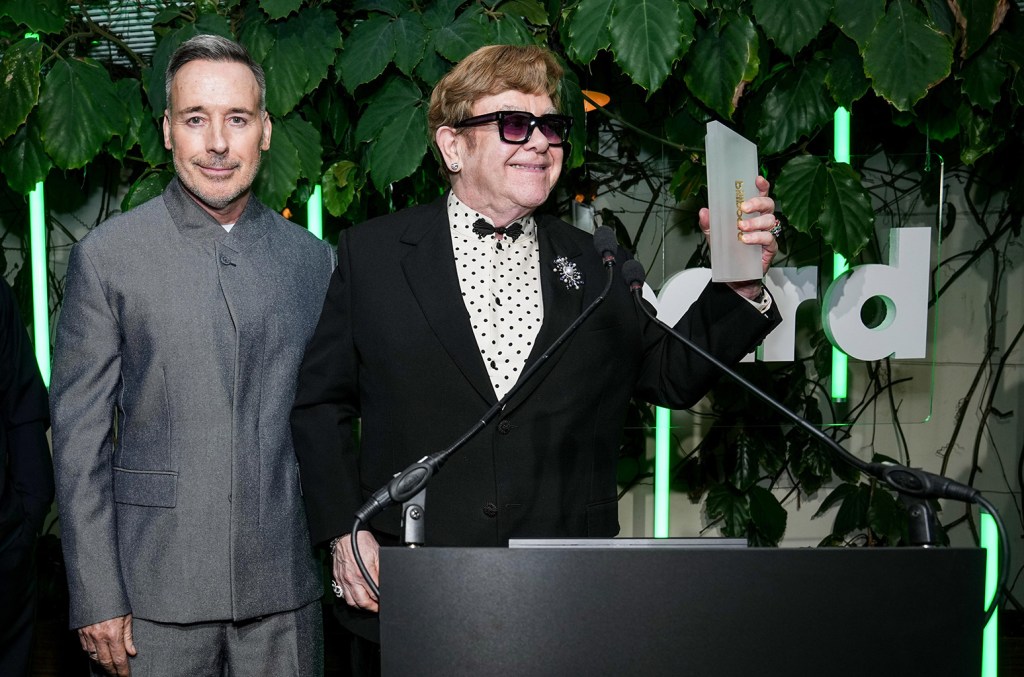
Sir Elton John collected the Creators’ Champion Award at Billboard’s Global Power Players event in London on Wednesday (June 4) and used his speech to warn the U.K. government that “we will not back down” in relation to its controversial AI data bill.
Joined by his manager and husband David Furnish, John was awarded the inaugural trophy by Billboard editor-in-chief Hannah Karp in recognition for standing up for the creative industry and calling for fair usage and protections for music rights holders in relation to AI models.
As referenced in John’s speech, the Labour government’s data bill – which proposes an opt-out approach for rights holders, as opposed to the preferred opt-in strategy – has been voted down by the House of Lords for an unprecedented fifth time. Led by Baroness Kidron, the ping-pong between the Houses of Commons and the upper house has lasted for weeks and resulted in John calling the government “absolute losers” in a recent interview.
Trending on Billboard
Taking to the stage, John thanked Billboard for the accolade as he was honored alongside other industry leaders such as Empire’s Ghazi and Tems on the night. “Supporting the next generation of British artists is the one of the major driving forces in my life,” he said and thanked the Lords who backed the amendment saying “you rock.”
He continued: “The onus is now on the government to do the right thing and have transparency added to the bill. We’ve asked them so many times to come to us. We’ve had so many meetings with them saying that we wanted to work with you.
“Copyright has to be transparent and seek permission,” he continued. “These two principles are the bedrock of the industry and they must be included in the data bill as a backstop. Let’s be clear: We want to work with the government, we want our government to work with us. We are not anti-AI and we are not anti-Big Tech.”
John added in his passionate speech: “We are not against Labour and we want a solution. We want to bring all parties together in a way that is transparent and fair and allows artists to maintain control of their work.” He concluded: “We will not back down and we will not go away quietly. This is just the beginning.”
Read the full speech below.
Elton John’s full speech at Billboard‘s Global Power Players event
“Thank you to Billboard for honoring myself and David with this incredible award. Supporting the next generation of British artists is one of the major driving forces in my life. It’s so important. As everyone in this room is aware, the data bill is currently looming over us and our musicians and our industries and the future of the livelihood of all artists.
It is an existential issue. In the last few hours the government has been defeated for an unprecedented fifth time by the House of Lords – that’s never happened before. The Lords, who have backed our crucial amendment to the bill – thank you so much – you rock.
The onus is now on the government to do the right thing and have transparency added to the bill. We’ve asked them so many times to come to us. We’ve had so many meetings with them saying that we wanted to work with you. I voted for you, you promised me that you wanted to get young artists into Europe. I did a show for you and to get more finance into the country and investment. I did a show at St Paul’s Cathedral… and we’ve heard nothing.
Copyright has to be transparent and seek permission. These two principles are the bedrock of the industry and they must be included in the data bill as a backstop. Let’s be clear: we want to work with the government, we want our government to work with us. We are not anti-AI and we are not anti-Big Tech.
We are not against Labour and we want a solution. We want to bring all parties together in a way that is transparent and fair and allows artists to maintain control of their work. It’s so fucking important. A machine is not a human being; it doesn’t have a soul. An artist when they create or they write or they sculpt or they paint or they photograph has a soul, it’s coming from the feeling of a person. And it’s so important if we ever lose that, we are well and truly fucked.
We will not back down and we will not go away quietly. This is just the beginning and thank you Billboard and Baroness Kidron for standing up for our world beating artists and journalists and playwrights and authors.
Let’s put it like this: The entertainment industry brings £125 billion to the United Kingdom and is the second biggest industry in this Great Britain. And they are treating us like shit. They are treating us like idiots. They have their head in the sand. The Labour government at the moment should be called the Ostrich Party. I will fight for this until it’s done and people have a fair deal. Every young artist or new person who writes a song, I want them to have a future and have their copyright respected.
There’s 2.4 million people in this industry in Britain, and 70% of them live outside of London. This isn’t a case of wealthy London people, this is a nationwide thing. Please listen to us, government. If you don’t, there’s going to be trouble. If you don’t, I will come banging on your door. But let’s get together: give me a call! Let’s have a cup of tea! So far, you haven’t responded to anything we’ve suggested. Thank you!”
Russell Simmons is suing HBO for defamation over a 2020 documentary focused on the sexual assault allegations against him, claiming the film disregarded evidence in his favor — including “CIA-grade polygraph results” and Oprah Winfrey’s withdrawal from the project.
In a complaint filed Tuesday (June 3) in Manhattan court, attorneys for Simmons say the movie On The Record defamed him by ignoring key information — including from over 20 witnesses — that would have “refuted and rebutted” the allegations that were “falsely made against plaintiff in the film.”
“The evidence and information were made available to defendants, including then CEO of WarnerMedia John Stankey, Chairman and CEO of HBO and Max Content, Casey Bloys,” the star’s lawyers write. “However, the Defendants disregarded and/or suppressed said materials.”
Spokespeople for HBO and parent company Warner Bros. Discovery did not immediately return a request for comment Wednesday (June 4).
Simmons, who founded Def Jam Recordings in 1984 and later built a formidable hip-hop empire, has faced a slew of abuse allegations since 2017 — first in an investigative article by the New York Times, then in the HBO doc. The film, directed by Kirby Dick and Amy Ziering, centered on claims made by Drew Dixon, a former A&R at Def Jam who says Simmons raped her, but also featured interviews with several other alleged victims.
In his complaint, Simmons says he provided HBO and the filmmakers with ample evidence that was “supportive and favorable” to him and would have countered those allegations. And he says the network was urged to consider that info by “luminaries in media and politics,” including “civil rights leaders and members of Congress.”
Simmons says the favorable evidence included “nine consecutive credible and favorable CIA-grade polygraph results” — presumably tests taken by him about the accusations. He also says HBO ignored the fact that Winfrey, the movie’s original executive producer, had withdrawn her support after “publicly noting inconsistencies in the accusations.”
“Defendants willfully, and/or recklessly, disregarded and suppressed said information and evidence, and published, and continue to republish defamatory content,” attorneys for Simmons wrote.
The lawsuit could face procedural challenges. The statute of limitations for libel lawsuits in New York is one year, a limit that has clearly lapsed for a movie released in 2020. Simmons’ lawyers will likely argue that he has continued to be defamed by new re-issues of the documentary, particularly in foreign markets.
The new case is a role reversal for Simmons, who has already been on the receiving end of a defamation lawsuit from Dixon over claims that he defamed her by suggesting during a podcast interview that she was lying about her allegations. He’s also facing a sexual assault lawsuit from another unnamed alleged victim.
DDG has countered Halle Bailey’s domestic violence accusations with a request for a restraining order of his own, telling a judge that the 25-year-old singer and actress is abusive and has repeatedly threatened self-harm for emotional manipulation.
The 27-year-old streamer and rapper DDG (Darryl Dwayne Granberry Jr.) made the allegations in a counter-petition filed Wednesday (June 4) against Bailey, who won a temporary domestic violence restraining order last month after claiming DDG had physically attacked her multiple times in the presence of their 18-month-old son, Halo.
DDG denies abusing Bailey and says he’s actually the one who needs protection. He claims Bailey has repeatedly punched and slapped him, stalked him by hiding Airtags in his cars, and threatened to take her own life during jealous outbursts when he attempted to end their relationship or “establish boundaries.”
Trending on Billboard
According to the counter-petition, Bailey has at various times threatened suicide with both a knife and a gun. DDG says Bailey has also used Halo as a tool of manipulation, threatening to get an abortion during the pregnancy and, now, blocking his access to the child.
“In or about August 2023, during a particularly volatile argument, petitioner became enraged and threatened to end her life using my legally owned firearm. Without my consent, she took the weapon and left the house,” wrote DDG in a declaration attached to his court filing. “This incident was one of several in which petitioner’s actions posed a serious threat to her own safety and the safety of our son by creating an environment of emotional distress and danger within the home.”
DDG’s counter-petition includes pages of text messages between the duo, including messages where Bailey writes, “IM GOONG TO KILL MYSWLF TONIGHT” [sic] and “I am simply not tough enough for this world. Please take halo so he doesn’t have to see.”
The DDG counter-petition seeks a stay-away order against Bailey and for the court to award him joint or shared custody of Halo, who is currently in Bailey’s sole custody per the temporary restraining order.
DDG is also asking to bar Bailey from taking Halo with her to Italy for two months to film a movie beginning this weekend. Bailey has sought court permission to bring Halo on the contractually mandated film shoot, but DDG’s counter-petition says international travel is dangerous because Bailey poses a psychological risk to both herself and the child.
“A parent who has threatened suicide repeatedly — who has armed herself with a firearm while in emotional crisis, who has driven with the child in a potentially suicidal state, and who continues to escalate when emotionally dysregulated — cannot be entrusted to care for a vulnerable infant abroad, without the safety net of California court supervision, welfare checks, mental health intervention or child protective services,” wrote DDG’s attorney Larry Bakman in the court papers.
Bailey’s reps did not immediately return a request for comment on the allegations, though her attorney, Terry Levich Ross, said during a hearing in Los Angeles court on Wednesday that DDG’s counterclaims are “not accurate.”
During that hearing, Judge Latrice A.G. Byrdsong said she’ll issue a decision soon as to whether Bailey can bring Halo when she departs for Italy on Saturday (June 7). A full hearing is set for June 24 on the duo’s competing petitions for permanent restraining orders against each other.
Goldman Sachs lowered its global growth expectations for the music industry for the next five years, as well as its forecast for global recorded music revenues this year, in a report published Tuesday (June 3).
The Wall Street investment bank’s Music in the Air report, which has become a closely-watched guide for music industry executives and investors, said it expects the global music industry to generate $31.4 billion in net revenues in 2025, a $2.5 billion decline from its 2024 projection of $33.9 billion.
That reflects growth of 6.8% on average from 2025 to 2030, down from the 7.6% compound annual growth rate (CAGR) analysts had previously forecast for that period last year. The primary factors driving that downward revision, Goldman says, are the slowing growth of last year’s recorded music revenues and lower ad-funded streaming growth, both of which contributed to expectations of 7.9% streaming growth on average from 2024-2030, down from the 9.8% previously forecast.
Trending on Billboard
“2024 was the first year since we began forecasting music industry trends where global music revenues fell short of our expectations,” the authors of the closely watched report wrote. “This was also the first year since we started forecasting music industry revenue where the recorded music market came well below our expectations.”
Goldman also issued new estimates for future growth, projecting that the music industry will grow at a compound annual growth rate of 4.8% for the years 2031 to 2035.
These slower growth forecasts echo findings of earlier reports this year, such as the IFPI’s March findings that global recorded music growth for 2024 was half of what it was in 2023, and the RIAA’s similar report that found that U.S. streaming revenue growth last year slowed to 3% from 7.7% in 2023.
Nonetheless, Goldman analysts said they expect the value of music rights and companies to remain “resilient” amid an uncertain macroeconomic backdrop, and that more frequent streaming subscription price increases and individualized service plans will provide support.
In 2025, Goldman says it expects global music industry revenue growth of 7.7%, down from its previous forecast of 8.3%, with growth in the live music sector and a slight improvement in recorded music revenue growth serving as the main drivers.
Goldman’s revision of its streaming growth outlook within recorded music revenues was due to significantly lower ad-funded streaming, researchers said. Ad-funded streaming growth is expected to slow to 5.7%, compared to its 2024 forecast of 11.3%.
Researchers said these “meaningful changes to our streaming assumptions” stem from a structural shift of more consumers preferring shortform as opposed to longform videos, less upside gained from emerging platforms and the impact of near-term uncertainty.
Those factors also caused Goldman to expect slightly lower subscriber and average revenue per user growth among streaming platforms.
One of Cassie Ventura’s friends testified Wednesday that Sean “Diddy” Combs dangled her over a 17th-floor balcony, telling jurors that the incident left her with “night terrors and paranoia.”
On the witness stand during the fourth week of the music mogul’s sex-trafficking trial, Bryana Bongolan said she had been at Ventura’s apartment in 2016 when Combs stormed in unexpectedly, according to CNN. She told the jurors that the star dangled her over a balcony, then threw her into furniture.
The attack left her with injuries both physical and psychological, Bongolan said: “I have night terrors and paranoia and scream in my sleep at times.”
Bongolan is one of many witnesses already called by prosecutors, who claim Combs ran a criminal enterprise aimed at coercing Ventura and other women into participating in drug-fueled sex shows known as “freak-offs.” Defense attorneys have said the sex was consensual and that Combs merely operated a legitimate music business.
The alleged balcony incident has long been one of the flashiest accusations against Diddy. It was referenced in Ventura’s civil lawsuit that sparked the rapper’s downfall, and prosecutors mentioned it in the indictment and in other pre-trial court filings. Bongolan herself described it in detail in a civil lawsuit she filed last year.
On the witness stand Wednesday, she described it for jurors, saying it had left her with “a bruise on the back of my leg and back and neck pain.”
Bongolan also testified that she once saw Diddy throw a knife at Ventura, and about another time that she saw Cassie with a black eye. She also told jurors about an alleged incident at a photoshoot in which Combs threatened her life.
“He came up really close to my face and said something around the lines of, ‘I’m the devil and I could kill you,’” Bongolan said.
Combs was indicted in September, charged with running a sprawling criminal operation aimed at facilitating the freak-offs — elaborate events in which Combs and others allegedly coerced Ventura and other victims into having sex with escorts while he watched and masturbated. Prosecutors also say the star and his associates used violence, money and blackmail to keep victims silent and under his control. (Read Billboard‘s full explainer of the case against Diddy here.)
Once one of the music industry’s most powerful men, Combs is accused of racketeering conspiracy (a so-called RICO charge), sex trafficking and violating a federal prostitution statute. If convicted on all of the charges, he faces a potential sentence of life in prison.
The trial, which has already featured testimony from Ventura herself, another unnamed victim named Mia and numerous other witnesses, is expected to run until early July. Bongolan is expected to continue testifying in the afternoon.

 State Champ Radio
State Champ Radio 
